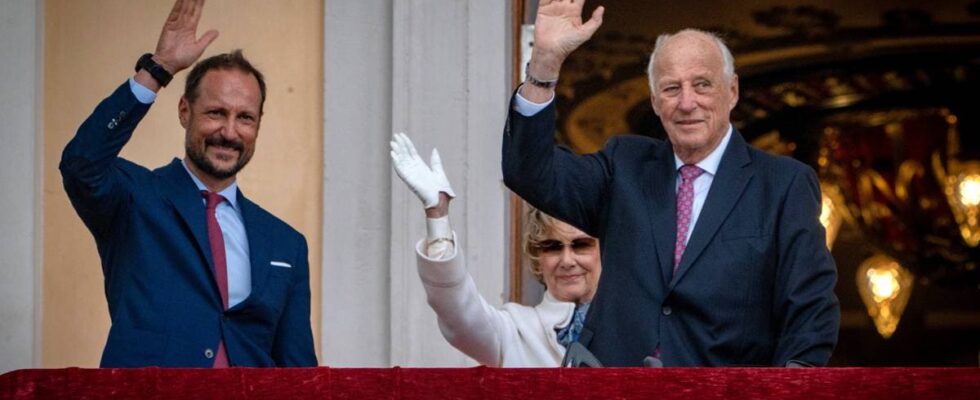– Norwegians still give the royal house a solid chance, but not unconditionally, says commentator Eva Grinde in Dagens Næringsliv (DN) when she sees the figures in news’s survey. In a recent opinion poll conducted by Norstat for news, the message from the people is clear: 36 per cent say that they have gained a more negative view of the royal house. Only 5 percent say that they have gained a more positive view, while 55 percent have an unchanged view of the royal house. The measurement was carried out earlier this week, in the period 19–22 August. For comparison, news asked the same question two years ago. It had just become known that several patient organizations had broken off their collaboration with Princess Märtha Louise, and Durek Verrett’s statements that a medallion had helped him recover from corona had caused strong reactions. At the time, 17 percent answered that they had gained a more negative view of the royal house. Now more than twice as many say the same. There have been several controversies related to Princess Märtha Louise and Durek Verrett. Now many of those who have acquired a more negative view of the royal house state one or both of them as the reason for it. Photo: Geir Olsen / NTB – Not to be avoided Of those who have now answered that they have gained a more negative view, most justify it with Princess Märtha Louise, Durek Verrett and/or Marius Borg Høiby. – That behavior in the marginal zones affects the perception of the entire institution is completely natural. It cannot be avoided when the institution is also a family, says Grinde. Princess Märtha Louise and Durek Verrett have caused reactions several times in the past year. There have been controversial statements about children being possessed by spirits. Wedding gin that is being investigated breaks the ban on alcohol advertising. Rights to a princess wedding sold to a British celebrity magazine. Recently, the headlines have also been characterized by Marius Borg Høiby, who has been charged with bodily harm, damage and threats and is being investigated for several matters. In a public written statement, Høiby himself admitted to the use of violence in alcohol and cocaine intoxication. Marius Borg Høiby (tv) is not part of the royal house, but is part of the royal family. Here he is with his family during the government’s celebration of little sister Princess Ingrid Alexandra’s 18th birthday. Photo: Lise Åserud / NTB Far fewer Norwegians support the monarchy In addition to many Norwegians having a more negative view of the royal house, support for the monarchy as a form of government is also falling. When King Harald and Queen Sonja were praised for being “good enough to be king and queen” when they turned 80 in 2017, the monarchy had 81 percent of the Norwegian people behind them. Now 68 percent say they support the monarchy. – A decrease of 13 percentage points since 2017 is significant. That should concern the royals, says Grinde. – There is no automaticity in the Norwegian people’s trust, but they have a very good starting point to land on their feet this time as well. After the winter had been characterized by headlines about the king’s illness in Malaysia and downsizing, the king was greeted by public celebration when he and the queen went on a county tour in May this year. Then the survey showed that 73 percent of Norwegians supported the monarchy. Now, three months later, support has fallen to 68 per cent. The decline during the summer is significant. Grinde had nevertheless believed that the decline should have been greater. – The first thing I thought was: “Gosh, hasn’t the support dropped more?” 68 percent is solid support, despite the rather ugly drama that has unfolded in the meantime. Could it be that commentators are not quite in step with the depth of the people, she wonders. – At the same time: This is part of a trend that is going the wrong way for the royal house. Despite being very popular himself, King Harald now leads a monarchy with declining support. Photo: Terje Haugnes / news – Fragile support Grinde calls Norwegians pragmatic monarchists. This means that support for the monarchy is fragile, she believes. – Although support for the monarchy is still great, it is also fragile, says DN commentator Eva Grinde. Photo: news – Many Norwegians support the monarchy despite being against random families inheriting power and position. But we say: “It works. It makes society stable.” As long as the royal family is so great, we are willing to make an exception to the democratic principles. But as long as it is just that – great. – It is not certain that in the long run Norwegians are willing to pay for a royal family that does not keep its part of the contract. Despite lower support and a more negative view of the royal house, Grinde still does not believe that this need be the beginning of the end for the monarchy. – No, but I wouldn’t have breathed a sigh of relief if I were them either. Balancing an archaic institution with modern family life is an extreme sport. The castle does not wish to comment on this matter. Published 25/08/2024, at 18.47
ttn-69
Almost four out of ten have a more negative view of the royal house – news Norway – Overview of news from different parts of the country

